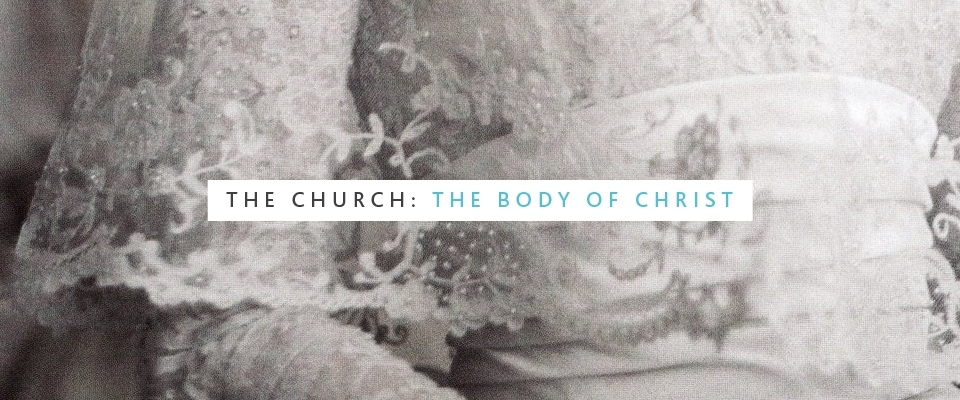In our introductory post, What Is The Church?, I concluded that the church can be defined by three metaphors in Scripture: the people of God, the body of Christ, and the temple of the Spirit. In this post, I will take a look at what it means for the church to be the body of Christ.
It is a pretty fantastical claim, if you think about it, that the community of gathered Christians could be called the body of Christ. It shows that the body of gathered believers can only be understood in the context of Jesus and his own body. Put differently, the church cannot be understood outside of Christ. The church is his before it is ours.
Paul writes to the Ephesians, “God put all things under his feet and gave him as head over all things to the church, which is his body, the fullness of him who fills all in all” (Eph. 1:22-23). Much ink has been spilt over what exactly this passage is meant to convey, but there are a few things we can know with certainty. To say Jesus is head is to say that he is the owner, the lord over all that is (cf. Col 1:15-20). Our self-understanding as a community is not found in each of us independently asking “who am I?”, but in asking together, “whose are we?” The only answer we will come to is this: we are Christ’s, we are his body.
The church as the body of Christ extends beyond just metaphorical language. It describes what the church actually is. In fancier terms, it speaks to the church’s ontology. Think about Paul’s first encounter with Jesus on the road to Damascus. Paul had been persecuting the early church, and yet Jesus asks him “Why do you persecute me?” (Acts 9:4; 22:7; 26:14). There is an intertwined reality between Christ and his body as the church. For this reason, Paul continues in Ephesians that the church is “the fullness of him.” The church as the body of Christ is ultimately the fullness of Christ. Of course, we are in the process of becoming that fullness (cf. Eph 3:19; 4:13). Yet, even in its in-process state, where the church is present Christ is present.
Understanding that we are his body has several implications for the people of God:
First, it informs how we live because we are not our own. There are many examples of this in the New Testament, but I want to consider one in particular. Paul writes to the Corinthians, “Do you not know that your bodies are members of Christ? Shall I then take the members of Christ and make them members of a prostitute?” (1 Cor 6:15). Since our baptisms are a baptism into Christ’s body—into his death and resurrection—therefore our bodies are incorporated into his body. Therefore what we do to ourselves, we do to Christ.
This means, also, that we get to enter into the gospel over and over. Think about it this way: anytime someone in the church sins against you and you forgive them, you are experiencing the power of the death and resurrection of Jesus. The sin is being laid on his body and forgiven through his body. It is the same thing anytime we experience redemption, reconciliation, and new life.
Second, understanding the church as the body of Christ calls us to unity. We belong to Christ and to one another before we belong to ourselves. Paul writes to the Romans, “as in one body we have many members, and the members do not all have the same function, so we, though many, are one body in Christ, and individually members one of another” (Rom. 12:3-8). In other words, we are only most fully ourselves with one another in Christ than we are on our own. God intentionally made us to exist in relationship with others. Each of us in our uniqueness—character, skills, etc—are meant to contribute to the community, and together we become the fullness of Christ. Faith is meant to be personal but its never meant to be private and isolated.
Third, it calls us to be a living witness. We get to continue Christ’s mission in the world. Lynn Cohick writes, “believers represent Christ not simply as forgiven sinners, but as containing within the church the fullness of God’s plan of redemption, the first scent of hope and promise to a word decaying in sin. The church is integral to God’s plan in Christ to make known to the powers now and in the age to come His greatness and glory.” This is a great summary of what Paul writes, “The love of Christ controls us, because we have concluded this: that one has died for all, therefore all have died; and he died for all, that those who live might no longer live for themselves but for him who for their sake died and was raised … All this is from God, who through Christ reconciled us to himself and gave us the ministry of reconciliation; that is, in Christ God was reconciling the world to himself, not counting their trespasses against them, and entrusting to us the message of reconciliation. Therefore, we are ambassadors for Christ, God making his appeal through us” (2 Cor 5:11-21).
When we remember that we are the body of Christ, we must remember that his body was crucified, dead, and risen. This calls us to sacrifice, but also to proclamation. The body of Christ is infused with the message of reconciliation, because through Christ God was reconciling the world to himself. And now, through the church God continues to call people to the saving power of Jesus’ death and resurrection.
Remembering that the church is the body of Christ calls us to let the story of the gospel—especially his death and resurrection—become our overarching story and identity. It is an immense privilege to be so intimately connected to Christ, and yet the privilege is not for ourselves alone, it is also for the sake of the world.




